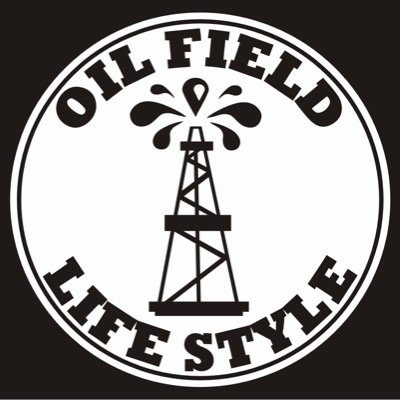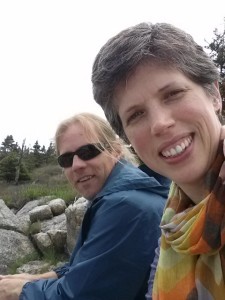Thrilled to spend half of my day with my old friend and colleague from New Orleans, geologist Mark Kulp. Mark has been bringing his expertise to the front lines of coastal disasters over the last few decades: first, the steep trajectory of Louisiana coastal wetland loss and the subsequent devastation of Hurricane Katrina; and then the Deepwater Horizon oil spill, where he ran one of the SCAT triage teams to assess damage and plan response and is still tied up with expert opinion around the subsequent litigation. It is the oil spill work that brings him north, on a trip to discuss remediation options around oil spills, including a field trip to the Arrow, wrecked in 1970 off Isle Madame with a payload of Bunker C crude oil (only recently removed). Great to hear news of shared friends and learn about the online Coastal Processes, Hazards and Society course he has been developing with colleagues at UNO, Penn State and Shippensburg. We hit the Armview and Pavia at Herring Cove, both highlights on the fringe of the Halifax Peninsula.
Tag: oil and gas exploration

The logo of the new Halifax-based clothing brand.
I have been seeing a few new t-shirts around lately, riffing on the East Coast Lifestyle brand (the logo of which centers on a classic nautical anchor), but proudly featuring a spurting oil derrick, and the name ‘Oilfield Lifestyle’. It turns out this is a Halifax product, indeed by a member of our school family. I have always known, as someone who grew up in a pulp and paper town, how otherwise unattractive infrastructure that provides a livelihood can become an important landscape feature (e.g. for giving directions) and doggedly defended as part of local identity. I think this new brand is another example of that kind of normalization. It suggests that not only can people become accustomed and attached to infrastructure that provides a recognizable recreational and aesthetic amenity (like a headpond), but even that without such assets. It is not surprising this derives from the east coast; many east coasters do the long commute to Alberta to work in the oil sands, and so the lifestyle this brand supports is one that includes many red-eye flights. As a landscape scholar, however, I am interested by the use of a stylized but archaic-looking derrick rather than pump jack, pipeline or open-pit mine. I wonder how accurate this branding is of the landscape in which its wearers toil.

Landrovers, researchers and penguins on a Falklands beach, January 2015 (photo: Carlos Andrade Amaya)
A Canadian program called Mitacs Globalink brings high-achieving upper-year undergraduate students to Canada to work with researchers for 12 weeks. Eligible countries this year include Australia (a new addition), Brazil, China, France, India, Mexico, Saudi Arabia, Tunisia, and Vietnam. Applications are now open here for North American summer 2016 (closing Sept 24, 2015). It is a great program: it is currently funding Joy Wang to work in my lab monitoring tree cover under grazing via Google Earth Pro. For Summer 2016 I have submitted opportunities for two students on my new sustainable tourism landscapes and seascapes research work in the Falklands (see also here, if you are looking for a Masters project in this area). Broadly, one project is on spatial science, land cover and ecology, and the other related to ecotourism, visual sociology and social media. I am looking forward to interviewing this year’s crop of applicants later this fall. A summary of the above project (#7229) follows, but for more details, go to the Mitacs Globalink website.
The Falkland Islands are a remote British Overseas Territory east of Patagonia with a limited and contested land mass, unique ecosystem (including five species of penguins), and a historical reliance on renewable ecosystem goods and services to support its people, particularly grazing and fishing. Cruise ship tourism has become an increasingly important part of the local economy, and more recently, oil and gas exploration offshore has led to development for extraction. These four sectors interconnect in interesting and challenging ways and all have impacts on the local community and supporting ecosystems. I am using social and spatial methods to explore these landscape issues.
Two research projects within this larger domain are based on existing and secondary datasets and appropriate for involvement by short-term undergraduate research projects. The first is the use of existing GIS and aerial/satellite imagery going back 60 years to explore the impact on land cover of increasing numbers of tours to the King Penguin rookery at Volunteer Point. Poor transportation infrastructure outside of the main town of Stanley means that such tours are undertaken in Landrovers, sometimes tens of them at a time, which often fan out to avoid becoming bogged in peat. Specifically, is repeated vehicle traffic increasing the amount of ponding in the peatlands being traversed, or otherwise changing vegetation cover? Can such patterns be linked to visitor numbers?
The second project will use social media to explore perceptions of the Falklands land and seascape as oil and gas exploration begins. Software can be used to extract rich observations in the form of text and photo from Twitter and Instagram, using either hashtags or geotags. These data can be analyzed to explore the visibility of oil and gas infrastructure, and understand perceived tradeoffs that this industry presents for the community, ecology and economy.
SRES is launching a new strategic internal scholarship scheme this fall that invites high quality MES applicants for potential September 2016 intake to offer up around a set of departmental priority research areas. Interdisciplinary-minded students with high GPA and a passion for independent research are being invited to get in touch with professors about individual projects. Mine is related to my new work in the Falkland Islands. The description is below. If you have similar interests and meet the above description, please get in touch with me. The full list of projects is online.
The Falkland Islands are a British Overseas Territory east of Patagonia with a limited and contested land mass, unique ecosystem, and a historical reliance on fishing and grazing. Cruise ship tourism is a growing part of the local economy, however, and oil and gas exploration offshore has led to development for extraction. These four sectors interconnect in interesting and challenging ways and all have impacts on the local community and supporting ecosystems. The project will use social media to explore local and visitor perceptions of the Falklands land and seascape as oil and gas exploration begins. Software can be used to extract rich observations in the form of text and photo from Twitter and Instagram, using either hashtags or geotags. These data can be analyzed qualitatively to explore the visibility of oil and gas infrastructure, and understand perceived trade-offs that this industry presents for the community, ecology and economy.

